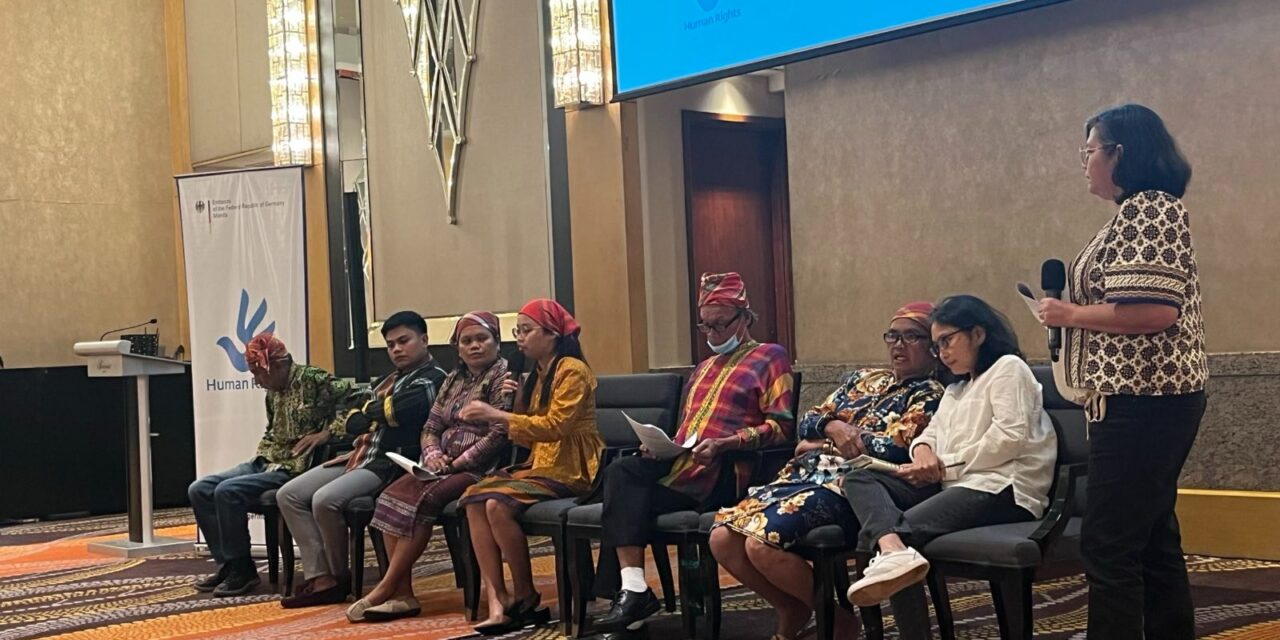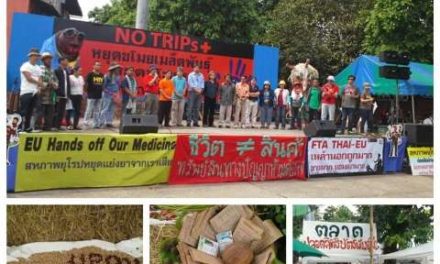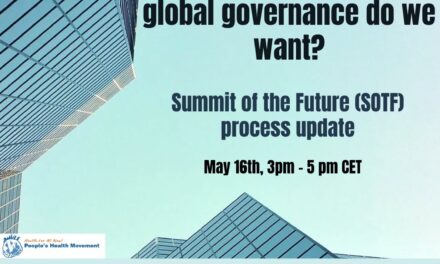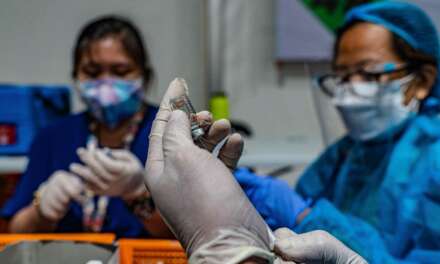How can the international community surface the specific and distinct situation of Non-Moro Indigenous Peoples (NMIPs) in the Bangsamoro Autonomous Region in Muslim Mindanao (BARMM)? This was a crucial challenge raised to the diplomatic community during the diplomatic briefing held on 13th of February 2024.
Through the initiative of the Embassy of the Federal Republic of Germany Manila to host and co-organize this crucial dialogue with the Loyukan network, NMIPs and advocate groups, NMIP leaders were able to present updates and stories from the ground, and forward recommendations based on data and reports.
According to Timuay Labi Leticio Datuwata, a Lambangian leader and Supreme Chieftain of Timuay Justice and Governance, despite the supposed objectives of the peace agreement, it continues to negatively impact their lives and experiences as NMIPs in BARMM.
“The non-implementation of the national policy for indigenous people, or the Indigenous Peoples Rights Act of 1997 (IPRA)… the failure to pass a true NMIP Code that will serve as a regional policy to recognize our rights as indigenous people in BARMM… [and] the worsening aggression and exploitation of natural resources in the region, including our ancestral lands that we have cared for and protected throughout history are the three major issues we face as NMIPs.” said Timuay Labi during his intervention in the briefing.
The sealing of the peace agreement between the Government of the Philippines (GPH) and the Moro Islamic Liberation Front (MILF) signaled a pledge to work on genuine peace in the region. Consequently, the international community expressed wide support for this important accord. One main concrete expression of this support is the large amount of Official Development Assistance (ODA) provided to reach the milestones envisioned in the peace agreement.
While the peace and development assistance is well-intentioned, crucial stakeholders, including NMIPs, are left out of the agenda. Even when NMIPs have been included in the agenda, there has been insufficient community consultation. In fact, there are a lot of issues confronting NMIPs that require urgent resolution. Loyukan network asserts that addressing these issues should be part of the peace efforts and the fruition of transitional justice in the region.
Acknowledging the good intentions of ODA projects in BARMM, Jen Cornelio, a Teduray leader, said that there were new cases of displacement in 2020 because of the normalization process. Based on their data, about 1,000 households were displaced because of armed conflict and many of them were not able to return home.
“Harassment and red-tagging of IP women human rights defenders continue to persist. Indigenous women human rights defenders continue to face violence and their families are at risk, [and] there are no safe sanctuaries and houses for victims of gender-based violence.” Jen added.
Lambangian leader Tessie Ambol further argues that the implementation of the programs are unjust as almost no information reaches them, nor are they consulted. She said that indigenous women are also constantly being left behind by government programs. “We are not part of any consultation processes, and there is no Free, Prior and Informed Consent (FPIC) for the projects such as the declaration of mineral reservation areas within our ancestral land.”
The place of NMIPs in peace and development
There must be a deeper understanding of NMIP political, economic, and security contexts in order to effectively support peace and development in the region. The alarming situation on the ground must be addressed, and development projects must avoid further exacerbating the problems facing NMIPs.
Ricamae Ented, a young Teduray woman, expressed that there is a lack of support for the agenda of indigenous women and girls, and the implementation of programs is not felt on the ground.
Ricamae said that, “It is very difficult to have access to education from elementary to tertiary level. This also applies to other social services as our communities are located in geographically disadvantaged and isolated areas (GIDA), with no access to information related to ODA programs.”
Arman Calantungan, a Lambangian youth leader, also shared that while they are frequently included as target beneficiaries, they were not treated as partners in implementation. He emphasized that the focus is still on how their farming can be linked to the value chain, agribusiness, and the greater market.
“Almost all programs incentivize business and export-based agriculture. Such rouses fear among us NMIPs that liberalizing access to ancestral lands for commercial agriculture and resource extraction. Consequently, competition for resources and land grabbing will inevitably intensify.” said Arman.
Loyukan network, composed of NMIPs, Teduray, Lambangian, Erumanen ne Menuvu and Menubu Dulangan, and Indigenous peoples rights advocates, reviewed the ODAs currently active in the Bangsamoro Autonomous Region in Muslim Mindanao (BARMM). The network gathered information on the experiences of local NMIP communities, and analyzed the potential impacts of these ODAs. Based on the initial research, the network found three main types of ODA support in the region: a) Livelihood support, infrastructure and social services, b) Conflict, peace and security, and c) Political processes, policies and frameworks.
Given the reports from the ground, NMIP leaders see these emerging patterns:
- There were no genuine Free Prior and Informed Consent (FPIC) processes conducted for projects to be implemented within the ancestral domain areas of NMIPs.
- There is a lack of information dissemination and participation of NMIP rights holders (the Indigenous Political Structures, Indigenous Peoples Organizations and ancestral domain claimant organizations), most especially in relation to the inclusion and meaningful participation of NMIP women and youth.
- There is a conflict of interest between NMIP Right holders and the Moro Islamic Liberation Front (MILF) and their Bangsamoro Islamic Armed Forces, which established MILF Camps Badre and Omar inside the Teduray Lambangian’s ancestral domain .
- There is no apparent support for the Ancestral Domain Sustainable Development and Protection Plan (ADSDPP), crafted by NMIP rights holders, which is integral to the development of ancestral territories and the protection of the environment and natural resources therein.
- There is continued armed conflict, displacement, and gender-based violence, without any clear and functional justice mechanisms.
- There is an apparent delay in policy legislations meant to address the issues of NMIPs, such as the NMIP Code, the Transitional Justice Bill, and the Human Rights Defenders Bill.
Recommendations from the NMIPs
Led by the Teduray leader Minted sa Inged Alim Bandara, the Loyukan network presented recommendations for ODA funding.
First, it is critical to ensure that there are genuine Free Prior and Informed Consent (FPIC) processes conducted for projects that are planned to be implemented in the ancestral domain areas of NMIPs. FPIC should be sought from NMIP rights holders in accordance with the peoples’ customary practices. This must take place before project implementation and must respect non-consent. The FPIC process must provide all data necessary for informed decision making. It is critical that projects undergo Social and Environmental Screenings (SES) prior to their implementation.
Similarly, the full participation of NMIP rights holders must be ensured in the planning, implementation and evaluation of all ODA projects that might affect NMIPs. This is especially critical for the Camp Transformation project, which provides development assistance for former MILF combatants to permanently settle in camp areas located within the ancestral domain of NMIPs (in particular, Camp Badre and Camp Omar).
Furthermore, there is no apparent support for NMIP-led livelihood projects. Towards this end, it is critical to recognize and support the Ancestral Domain Sustainable Development and Protection Plan (ADSDPP) and the Indigenous Knowledge Systems and Practices (IKSP) in agricultural and livelihood projects. The ADSDPP should serve as a blueprint for projects to be implemented within the ancestral domains of NMIPs.
Increasing the accessibility and efficiency of justice mechanisms to address land disputes, and gender based violence and the creation of human rights mechanisms is crucial. Indigenous justice systems, such as Tiyawan, Kukum, Antang-atang, Temembang kaglot, must be recognized as an important functioning institution that can contribute to our initiatives for transitional justice. The issue of continued armed conflicts must also be addressed by ensuring the full implementation of the Decommissioning Process as promised under the Bangsamoro Peace Process Normalization Track. Proliferation of firearms in the region must be addressed.
All ODA projects must emphasize support to the specific needs of NMIP women and youth. Meaningful participation from women and youth would ensure groundednesses of the implementation from a gender lens perspective. Support for access to justice, notably for cases of gender-related violence, must be one of the major plans in the ODA projects. It is also important to support access to education, health and other basic social services, as the inaccessibility of these programs especially impacts women and youth.
The diplomatic community can help address the situation of NMIPs by supporting policies that enable the full protection and realization of NMIP rights. Many of these policies are still pending codes and bills: the Non-Moro Indigenous Peoples Code in the BARMM, and Transitional Justice Bill and Human Rights Defenders Bill at the national level.
Finally, continued and regular engagement with NMIP rights holders and support organizations on the human rights situation and related concerns of NMIPs in the BARMM is critical for meeting the actual needs, rights, and desires of NMIPs. The diplomatic community must help ensure transparency and availability of data on ODA projects because it is necessary for NMIP rights holders to effectively be a part of the implementation and validation of projects.
Moving forward
The diplomatic briefing highlighted many crucial points that are important references for the diplomatic community to acknowledge, examine and resolve.
It was highlighted that the Indigenous peoples within the Bangsamoro Autonomous Region in Muslim Mindanao continue to assert the full recognition of their distinct rights through their political identity as already articulated in the Bangsamoro Organic Law – the Non-Moro Indigenous Peoples.
Practiced since time immemorial, there is a need to recognize Indigenous Political Structures (IPS) that embody the Indigenous governance of the NMIPs. Indigenous governance transcends instruments of recognition bestowed by national or regional governments. The right to self-determination ensures this right to self-governance of the NMIPs. Thus, it is imperative that IPS are recognized as NMIP rights holders of their ancestral domain.
The diplomatic briefing also stressed the responsibility and accountability of the diplomatic community to ensure that their development aid and projects do not contribute to exacerbating the already complex and alarming situation that many NMIPs are confronting.
In the spirit of the Bangsamoro Organic Law, the rights of the NMIPs must be guaranteed and should not be diminished under the new autonomous government. This crucial provision is animated by the landmark international instruments for the Indigenous peoples – the United Nations Declaration on the Rights of Indigenous Peoples (UNDRIP) and the ILO Convention 169 on Indigenous and Tribal Peoples (ILO 169). We trust that the diplomatic community will guarantee that the rights provided in these instruments can be fully exercised and realized by the NMIPs in the region.
——
About Us:
Loyukan is a Teduray term to mean comradeship. We are composed of NMIP Indigenous Political Structures and Organizations (Timuay Justice and Governance, Inged Fintailan (TJG – Women), Teduray-Lambangian Youth and Students Association, and Gempa te Kelindaan ne Kamal ne Erumanen ne Menuvu), Ancestral Domain Claimant Organizations (Teduray Lambangian Ancestral Domain Claim (TLADC), and CADT 164 (Erumanen ne Menuvu)), Indigenous Peoples Rights Advocates and Organizations (Legal Rights and Natural Resources Center, Focus On The Global South, LILAK Purple Action for Indigenous Women’s Rights, Episcopal Commission on Indigenous Peoples, Tebtebba Foundation, and Mindanao Peoples Peace Movement – Katawhang Lumad), and others. We are enjoined by the belief that the struggle for the full inclusion of the rights of the NMIPs during the peace process and the establishment of the new autonomous region is not only the fight of the NMIPs alone, but also of advocates who believe that Indigenous peoples rights are human rights.
Contact information –
TL Cio – [email protected]
Legal Rights and Natural Resources Center – [email protected]
LILAK Purple Action for Indigenous Women’s Rights – [email protected]
Focus On The Global South – [email protected]










